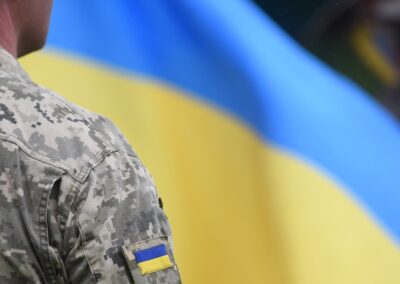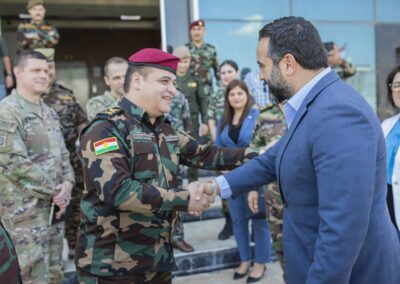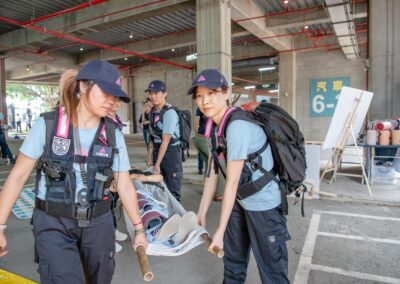It Begins with Knowledge: SoA provides 1,100 academic books to the Jordan Center for Counter Extremism
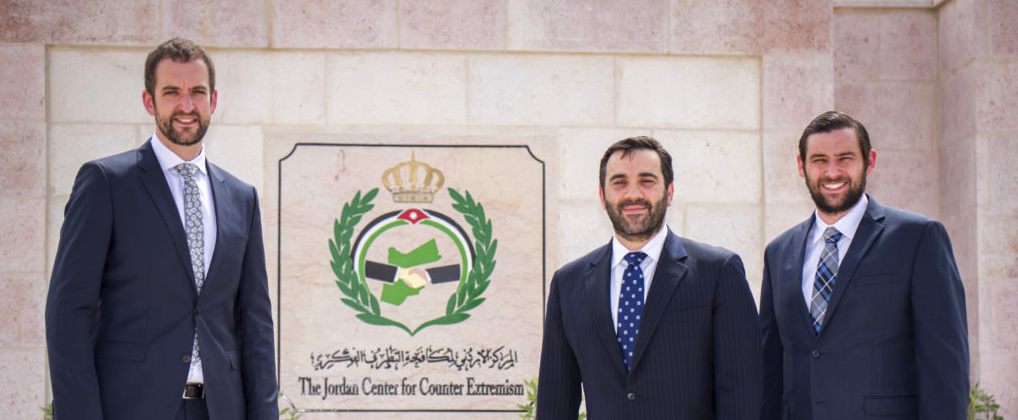
Given its stability and strategic geopolitical position in a region characterized by conflict and discord, Jordan has long been an indispensable US partner in the Middle East. The alliance between the two countries stretches back decades. In addition to security cooperation, Jordan and the US work closely on numerous regional issues, including their commitment to defeating ISIS.
Perhaps the most significant challenge that the two allies are grappling with is how to counter violent extremism (CVE) more effectively—not only in responding to threats after they have materialized, rather, more in fashioning comprehensive strategies that address the conditions that spawn these radical ideologies (often referred to as preventing violent extremism, or PVE). This is a complex issue with no simple solution.
Just a short drive outside the capital, Amman, the Jordan Center for Counter Extremism (JCCE) is playing a key role in the kingdom’s home-grown effort to study and confront this regional challenge. It’s a key component of the Jordanian government directive to the National Defense College: to conduct “further studies on extremism and Takfiri ideology and its impact on national security.” Last year, the center launched its inaugural master’s degree program. The first cohort of 20 students graduated on June 7. Its second class, which is twice as large and incorporates international students, is scheduled to begin soon.
Though it’s a young institution, the JCCE is off to a fast start, already offering a selection of security-related courses and seminars. Its growing reputation—and obvious potential—has attracted the attention of the US military. For actors with a stake in regional security, the JCCE exemplifies the kind of locally-initiated enterprise that can yield enduring, credible, and effective CVE methodologies.
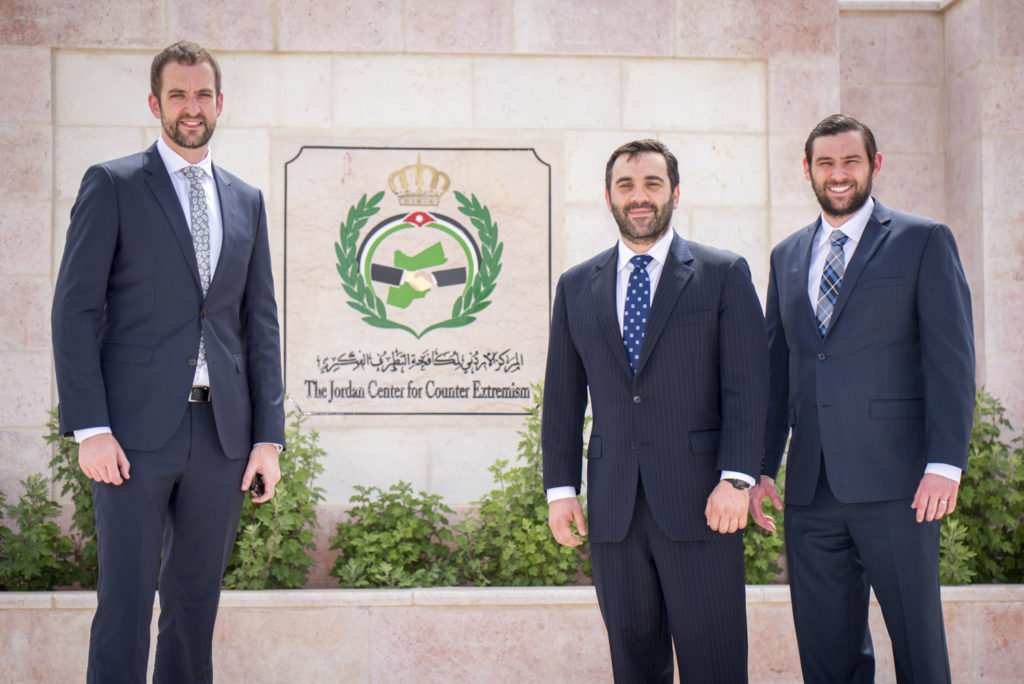
SoA’s COO, Isaac Eagan (left), and Middle East project managers Zack Bazzi (center) and Ray Ellison (right), following the JCCE ceremony.
In mid-February, the US civil affairs team in Jordan reached out to SoA to inform us about the JCCE’s progress and potential. The center’s research facility required additional academic books to meet the needs of the graduate students. Over the next several weeks, the team facilitated communications between the JCCE leadership and SoA.
In early March, I flew to Amman to meet with the JCCE director, Brigadier General Dr. Mohammed Alidmat, and the US team to discuss next steps. The center’s success was a high priority for everyone involved. As such, we moved quickly, reviewing and approving a project to provide nearly 1,100 academic books for its research facility. We viewed this as an investment with extraordinary long-term potential as the thought, introspection, and examination that these books will spur in the minds of the Jordanian scholars will also generate the good ideas needed to combat the bad ones. Ultimately, the solutions and strategies created by the Jordanians are what will endure.
On March 28, the JCCE held a ceremony formally opening the research facility. The event itself, attended by a diverse cadre of defense attachés, diplomats, and foreign representatives confirmed the value of collaboration and the sharing of ideas in the long battle against violent extremism.
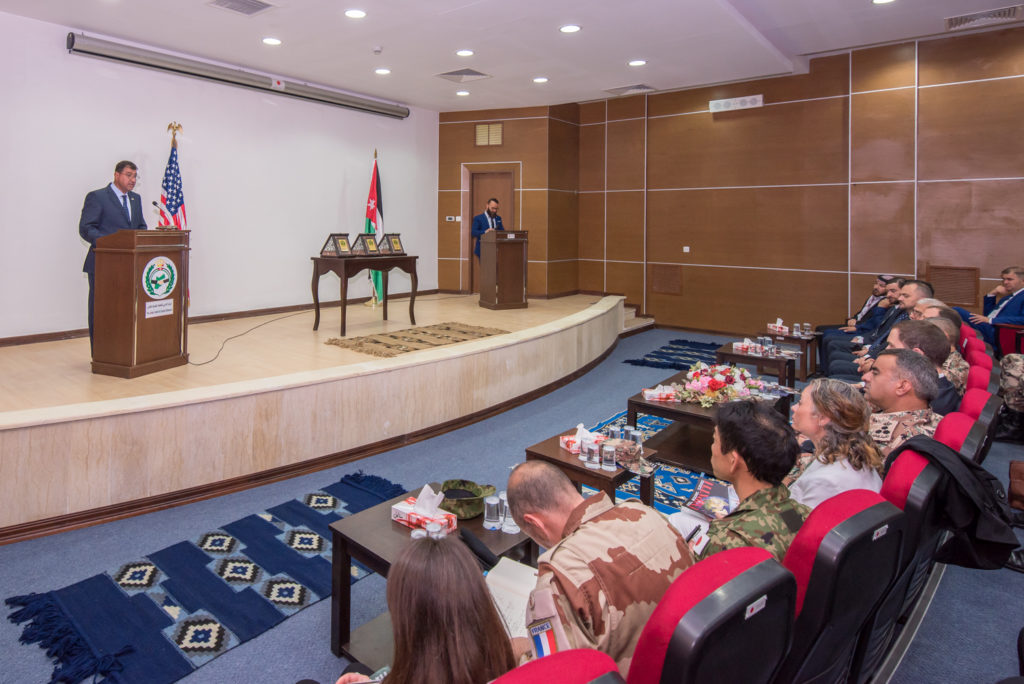
JCCE Director BG Dr. Mohammed Alidmat stresses the value of cooperation and partnership in the “war of ideologies.”
Dr. Alidmat, standing on a simple stage, flanked by a Jordanian and an American flag, hailed his country’s partnership with the United States as one that is “built on science, education, and research to confront extremism and terrorism—a deadly and ugly virus that still attacks our society in different and creative ways.” He framed the Kingdom’s CVE efforts as a “war of ideologies,” concluding, on a hopeful note, that “this war has also taught us how to distinguish between friends and enemies and taught us that the great American people are always friends.”
Later in the program, the sentiment of mutual support was echoed by our Chief Operating Officer, Isaac Eagan. “We at Spirit of America are inspired by the work being carried out every day at the JCCE, both by Dr. Alidmat and his staff in developing and implementing the curriculum and by the students in conducting their research on these important topics. We are honored to collaborate on this important initiative.”
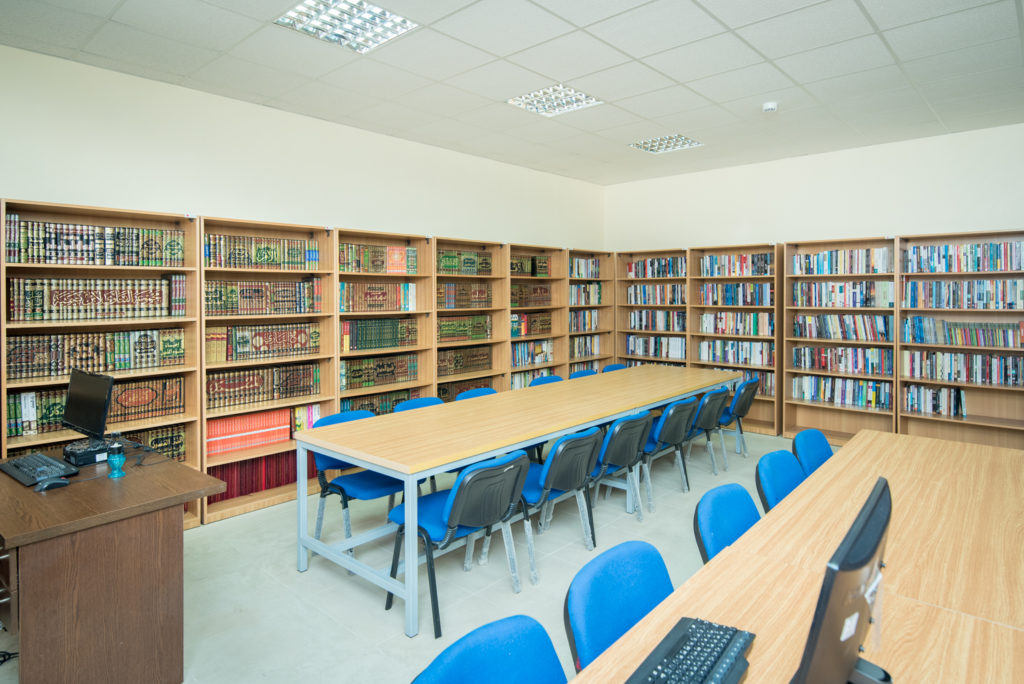
The JCCE research facility is filled with academic books provided by SoA.
Afterward, nearly 100 people from countries the world over broke bread, sharing good food and different views. As I looked around the courtyard, the lesson was clear: there will be no quick fixes in this long slog, no decisive sword strikes. Rather, it is bonds like these, forged by shared values and trust that will ultimately untangle the Gordian Knot of political violence and religious extremism.


